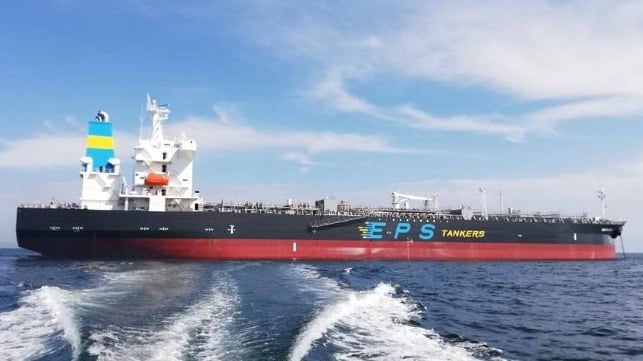Eastern Pacific Tests First Plug and Play Carbon Capture on Tankers

Singapore-based shipowner Eastern Pacific Shipping is seeking to accelerate the decarbonization of the shipping industry with plans to retrofit at least five medium-range tankers with carbon capture systems. Eastern Pacific is working with Rotterdam’s Value Maritime to install the first carbon capture and filtering systems onboard a pair of the company’s tankers as a test to fill a gap in its decarbonization strategy.
The retrofit on the two tankers, M/T Pacific Cobalt and M/T Pacific Gold, will make them the largest ocean-going vessels to date fitted with the technology. Engineering and planning are underway with the installation of the system onboard Pacific Cobalt expected to be completed by the end of this year while the installation on Pacific Gold is scheduled to be completed by the end of the first quarter in 2023. Eastern Pacific also has an option based on the test results to equip three more vessels with the technology.
The 2020-built, 49,700 dwt sister vessels will be fitted with Value Maritime’s Filtree system, a prefabricated gas cleaning system that filters sulfur and 99 percent of particulate matter. The system will include a carbon capture module charging a CO2 battery onboard. The charged CO2 battery will be discharged in port and subsequently used by CO2 customers, such as greenhouses, or injected into carbon sequestration networks. The discharged battery will be returned to the vessel for CO2 recharging.
According to the company, the “plug and play” approach allows vessels to capture up to 40 percent of CO2 emissions and has the potential of exceeding 90 percent in the future. They called it a development that is critical in cutting emissions in the shipping industry.
“Carbon capture technology was missing in our existing portfolio of emission lowering solutions, which today consists primarily of alternative marine fuels. We believe the technology holds significant promise for reducing emissions for existing and future ocean-going vessels,” said Cyril Ducau, CEO of EPS.
He added that coupled with alternative fuels, biofuels, and other solutions, carbon capture is a crucial step in accelerating the shipping industry’s decarbonization efforts ahead of International Maritime Organization targets.
“By equipping our tankers with Value Maritime’s systems, we hope to prove to the industry that carbon capture is a viable and scalable option available right now,” noted Ducau.

that matters most
Get the latest maritime news delivered to your inbox daily.
In addition to its carbon capture capabilities, the system developed for small and medium-sized ships also removes oil residue and particulate matter from the wash water, ensuring its PH value is neutralized and contributes to reducing the acidification of seawater.
In addition to the retrofits, the two companies are also exploring future collaboration opportunities, including deploying the Filtree system onboard EPS newbuilds, particularly its new generation of containerships. Currently, with a fleet of 200 vessels and 20 million dwt across three core segments, containerships, dry bulk carriers, and tankers, EPS is implementing a green and technology-driven strategy focusing on significantly lowering its CO2 emissions and greenhouse gas emissions and they view the CO2 capture an important addition to its overall emissions programs.
